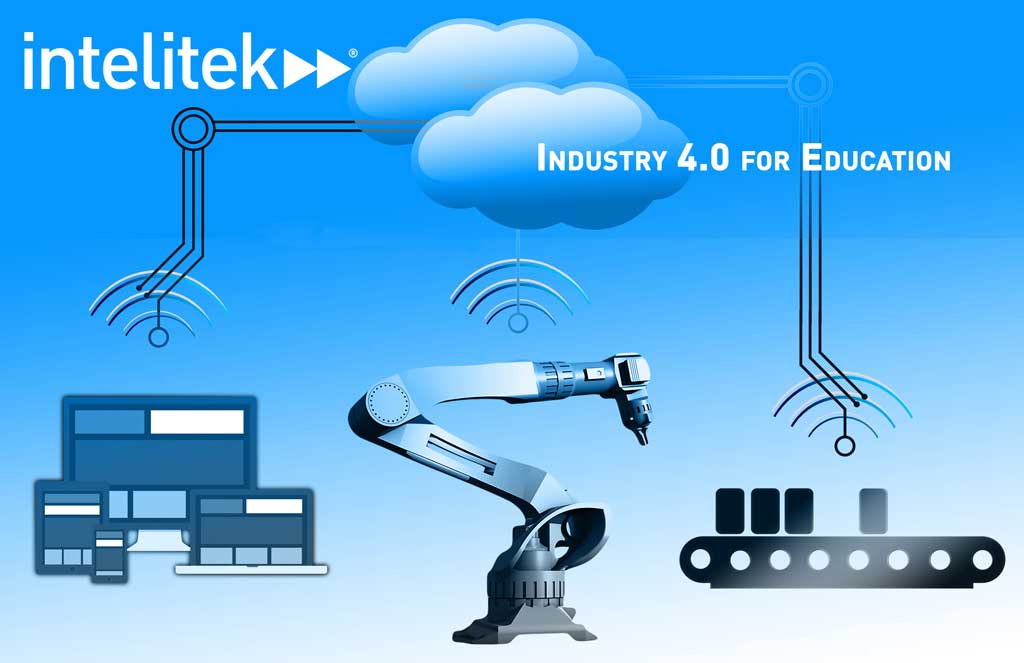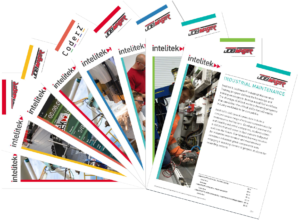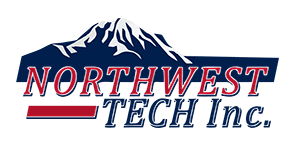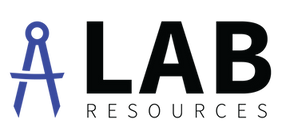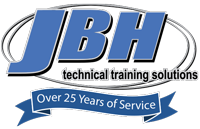Educating students in industrial training programs to be prepared for what they will meet on the factory floor in Smart Factories built with the principles of Industry 4.0 needs to be the priority of all machining, robotics, manufacturing and mechatronics training programs. The workforce of tomorrow needs to be more educated and capable to manage, monitor and maintain a sophisticated manufacturing process.
IoT is at the center of Industry 4.0. The ability to use sensors everywhere and to interconnect them wirelessly to a cloud based central control system is what enables Industry 4.0 to make such a huge difference to how a factory operates.
Look at an example of a machining station that in the not to distant past was operated by a human, and now is completely automated, we can analyze some of the functions that IoT and Sensors add to keep the system running efficiently.
Ultrasonic sensors – used to detect position of components, machines, and humans. Can be used to measure height of a piece of material for example.
Proximity sensor – detects distance of materials to specific point – often used to start and stop materials handling components like conveyors
Vision Sensors – advanced device analysis sensor that can be used for quality assurance, identification and sorting, or inventory recording among other examples.
Temperature Sensors – these have roles both as part of the production and part of the monitoring process. Temperature of a component or of the materials in a manufacturing process can be used to ensure reliable production, temperature of a machine or motor can be used to predict maintenance requirements and machine health.
Audio sensors – the sound of a machine cutting a material can be used for predictive maintenance. No sound – broken tool or missing raw material, high pitch sound – lubrication needed.
Vacuum sensors – can be used to detect if vacuum pickup is working
Color sensors – used to identify and sort inventory
Smoke sensors – detect faults, detect readiness of machines for next process
The list is endless, Level, Fluid pressure, Gas pressure, physical pressure, torque, humidity, acceleration, vibration, airflow, rotation, light, chemicals, current, voltage, magnetic field, altitude, and flex, are some of the hundreds of sensors that can be used to monitor and maintain a production plant.
With the introduction of Wireless IoT, the information from this large quantity of information gatherers enables more efficient planning, more interactive operation, real time flexibility and predictive maintenance.
This is the core of what Industry 4.0 represents. Every student from the maintenance technician level to the designer should be learning the intricacies of sensors and the IoT network supporting them.
For more information about teaching IoT for Industry 4.0 Education in your program, contact IntelitekContact Me.

